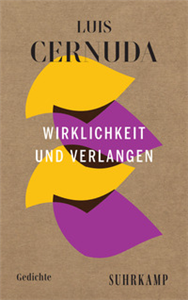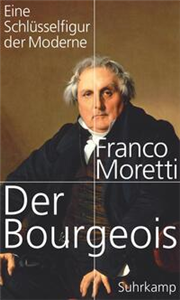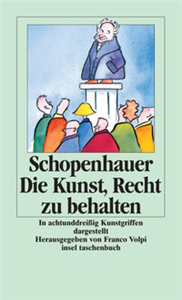Your Search Results
-
Promoted ContentSeptember 2022
Wirklichkeit und Verlangen
Gedichte. Zweisprachige Ausgabe
by Luis Cernuda, Susanne Lange
1936 zieht Luis Cernuda gegen Franco in den Krieg, im Gepäck einen Hölderlin-Band. »Ich wollte nützlich sein, doch es nutzte nichts«, urteilt Cernuda später: Sein Ausflug in die Kriegswirklichkeit dauert nur kurz, stets aber bleibt er Ankläger seiner Zeit. Schonungslos blickt er als Außenseiter, abseits literarischer Kreise und später aus dem Exil, auf die Wirklichkeit. In der Dichtung entscheidet sich Cernuda gegen Geläufiges, Erprobtes, Eingängiges. Raffinierte, eigenwillige Satzstrukturen setzen sich über Versgrenzen hinweg, klangvolle Metaphern und kunstvolle Bilder eines Hölderlin verwandelt er sich an und in einen Sturzbach von Worten, schroff und direkt. Ebensfalls im Jahr1936 veröffentlicht er zum ersten Mal sein gesammeltes lyrisches Schaffen unter dem Titel Wirklichkeit und Verlangen – ein Oeuvre, das sein Leben lang reicher wurde …. Der monumentale Band Wirklichkeit und Verlangen umfasst das lyrische Schaffen aus vier Jahrzehnten eines Dichters, dessen Werk bis heute Maßstab für Lyriker der gesamten spanischsprachigen Welt geblieben ist. Dieses Buch ist Teil der Reihe Spanische Bibliothek . Aus zehn unterschiedlichen Jahrzehnten vereint sie zehn Höhepunkte der spanischen Literatur, die das 20. Jahrhundert prägten. In Gedichten, Romanen, Essays, Erzählungen und Erinnerungen durchschreitet die Spanische Bibliothek die Geschichte des südeuropäischen Landes.
-
Promoted ContentAugust 1988
Gedichte für Städtebewohner
Herausgegeben und mit einem Nachwort von Franco Buono
by Bertolt Brecht, Franco Buono, Franco Buono
Seit den Anfängen der Massengesellschaft im 19. Jahrhundert ist sie nicht mehr aus der ›lyrischen‹ Produktion wegzudenken: die Stadt. Vervielfältigung wie Zerstörung menschlicher Beziehungen, Befreiung von (dörflicher) Naturbornierung und Zerstörung natürlicher Bedürfnisse, kurz: Faszination und Grauen sind die Pole dieses genuin ›modernen‹ Motivs. Seine raffiniertesten Versionen verschränken beides: entdecken die Trauer des Berauschenden großer Städte und die Faszination noch ihres Unmenschlichen. Auch Brechts Stadt-Gedichte sind, obwohl gewiß das Trostlose und Unmenschliche akzentuierend, nicht ohne eine solche dialektische Kehrseite. Denn ihre gesellschaftliche Hoffnung wie ihre didaktische Maxime ist, daß »die tiefste Verzweiflung die Bedingung für die Rettung« ist – so Franco Buono, der diese Auswahl zusammengestellt hat. Buonos Nachwort hebt das Besondere von Brechts Stadt-Gedichten hervor und skizziert die Geschichte des Stadt-Motivs in Brechts Werk.
-
 Trusted Partner
January 2009
Trusted Partner
January 2009Kurven, Karten, Stammbäume
Abstrakte Modelle für die Literaturgeschichte
by Franco Moretti, Florian Kessler, Alberto Piazza
Man könne auch als Literaturwissenschaftler durchaus über Bücher reden, ohne jemals eines gelesen zu haben – mit solch provokanten Thesen bringt Franco Moretti seit Jahren die internationale Literaturtheorie durcheinander. In seinem neuen Buch demonstriert Moretti, der ob seiner innovativen Verve bereits mit Umberto Eco verglichen wird, wie eine »abstrakte Literaturwissenschaft« aussehen könnte: Anstatt sich mit einzelnen kanonischen Texten auseinanderzusetzen, kartographiert er die Landschaft englischer Dorfgeschichten oder erprobt die Anwendbarkeit evolutionstheoretischer Konzepte auf die Entwicklung des Detektivromans.
-
 Trusted Partner
October 2014
Trusted Partner
October 2014Der Bourgeois
Eine Schlüsselfigur der Moderne
by Franco Moretti, Frank Jakubzik
Die industrielle Revolution hat keinen Stein auf dem anderen gelassen. Sie hat alle »altehrwürdigen Vorstellungen und Anschauungen« aufgelöst, alles »Ständische und Stehende verdampft, alles Heilige« entweiht, konstatieren Marx und Engels im »Kommunistischen Manifest«. Die Protagonisten dieser Umwälzung sind die Bürger, die Kaufleute und Industriekapitäne. Die Figur des Bourgeois hat nicht nur Max Weber, Werner Sombart und Joseph Schumpeter fasziniert, sie spielt auch eine Hauptrolle in den großen Werken der Weltliteratur: bei Defoe und Goethe, Balzac und Dickens, bei Thomas Mann und Henrik Ibsen. Franco Moretti rekonstruiert die Mentalität dieser Ära durch das Fenster Literatur: Warum hört Robinson Crusoe auch dann nicht auf zu arbeiten, als sein Überleben auf der paradiesischen Insel längst gesichert ist? Was verraten Ton, Schlüsselwörter und Grammatik der großen Romane des 19. Jahrhunderts über den Geist des Kapitalismus? Und was haben uns die Stücke Ibsens heute, das heißt in unseren postbürgerlichen Zeiten, noch zu sagen, in denen die Wachstumsideologie ebenso hinterfragt wird wie die Integrität von Bankern, Beratern und Analysten?
-
 Trusted Partner
The ArtsJanuary 2019
Trusted Partner
The ArtsJanuary 2019Spanish cinema 1973–2010
Auteurism, politics, landscape and memory
by Maria M. Delgado, Robin Fiddian
This collection offers a new lens through which to examine Spain's cinema production following the isolation imposed by the Franco regime. The seventeen key films analysed in the volume span a period of 35 years that have been crucial in the development of Spain, Spanish democracy and Spanish cinema. They encompass different genres (horror, thriller, melodrama, social realism, documentary), both popular (Los abrazos rotos/Broken Embraces, Vicky Cristina Barcelona) and more select art house fare (En la ciudad de Sylvia/In the City of Sylvia, El espíritu de la colmena/Spirit of the Beehive) and are made in English (as both first and second language), Basque, Castilian, Catalan and French. Offering an expanded understanding of 'national' cinemas, the volume explores key works by Guillermo del Toro and Lucrecia Martel alongside an examination of the ways in which established auteurs (Almodóvar, José Garci, Carlos Saura) and younger generations of filmmakers (Cesc Gay, Amenábar, Bollaín) have harnessed cinematic language towards a commentary on the nation-state. The result is a bold new study of the ways in which film has created new prisms that have determined how Spain is positioned in the global marketplace.
-
 Trusted Partner
Trusted Partner
-
 Trusted Partner
Trusted Partner
-
 Trusted Partner
May 1978
Trusted Partner
May 1978Die negierte Institution oder die Gemeinschaft der Ausgeschlossenen
Ein Experiment der psychiatrischen Klinik in Görz. Herausgegeben von Franco Basaglia. Aus dem Italienischen übersetzt von Anneheide Ascheri-Osterlow
by Franco Basaglia, Anneheide Ascheri-Osterlow, Anneheide Ascheri-Osterlow, Franco Basaglia
-
 Trusted Partner
1971
Trusted Partner
1971Die negierte Institution oder die Gemeinschaft der Ausgeschlossenen
Ein Experiment der Psychiatrischen Klinik in Görz
by Franco Basaglia, Heide Ascheri
-
 Trusted Partner
June 1995
Trusted Partner
June 1995Die Kunst, Recht zu behalten
In achtunddreißig Kunstgriffen dargestellt
by Arthur Schopenhauer, Franco Volpi
Organ der natürlichen Boshaftigkeit des Menschen, unverzichtbares Instrument, um Diskussionen erfolgreich zu führen und auf diese Weise dem Hang zur Rechthaberei nachzukommen, mithin der Wille, Recht zu behalten, gleichviel ob man im Recht ist oder nicht - dies und nichts anderes ist für Schopenhauer Dialektik.
-
 Trusted Partner
Trusted Partner
-
 Trusted Partner
Trusted Partner
-
 Trusted Partner
Trusted Partner
-
 Trusted Partner
The ArtsJanuary 2019
Trusted Partner
The ArtsJanuary 2019The war that won't die
The Spanish Civil War in cinema
by David Archibald
The war that won't die charts the changing nature of cinematic depictions of the Spanish Civil War. In 1936, a significant number of artists, filmmakers and writers - from George Orwell and Pablo Picasso to Joris Ivens and Joan Miró - rallied to support the country's democratically-elected Republican government. The arts have played an important role in shaping popular understandings of the Spanish Civil War and this book examines the specific role cinema has played in this process. The book's focus is on fictional feature films produced within Spain and beyond its borders between the 1940s and the early years of the twenty-first century - including Hollywood blockbusters, East European films, the work of the avant garde in Paris and films produced under Franco's censorial dictatorship. The book will appeal to scholars and students of Film, Media and Hispanic Studies, but also to historians and, indeed, anyone interested in why the Spanish Civil War remains such a contested political topic.
-
 Trusted Partner
The ArtsJune 2021
Trusted Partner
The ArtsJune 2021The war that won't die
The Spanish Civil War in cinema
by David Archibald
The war that won't die charts the changing nature of cinematic depictions of the Spanish Civil War. In 1936, a significant number of artists, filmmakers and writers - from George Orwell and Pablo Picasso to Joris Ivens and Joan Miró - rallied to support the country's democratically-elected Republican government. The arts have played an important role in shaping popular understandings of the Spanish Civil War and this book examines the specific role cinema has played in this process. The book's focus is on fictional feature films produced within Spain and beyond its borders between the 1940s and the early years of the twenty-first century - including Hollywood blockbusters, East European films, the work of the avant garde in Paris and films produced under Franco's censorial dictatorship. The book will appeal to scholars and students of Film, Media and Hispanic Studies, but also to historians and, indeed, anyone interested in why the Spanish Civil War remains such a contested political topic.
-
 Trusted Partner
Trusted Partner
-
 Trusted Partner
Trusted Partner
-
 Trusted Partner
July 2012
Trusted Partner
July 2012Von Kamen nach Corleone
Die Mafia in Deutschland
by Reski, Petra / Nachwort von Roberti, Franco
-
 Trusted Partner
Trusted Partner
-
 Trusted Partner
1992
Trusted Partner
1992Italiano Uno
Italienisch reden und verstehen. Ein Grundkurs. (rororo sprachen)
by Eckes, Jutta J; Belgiorno, Franco A


























